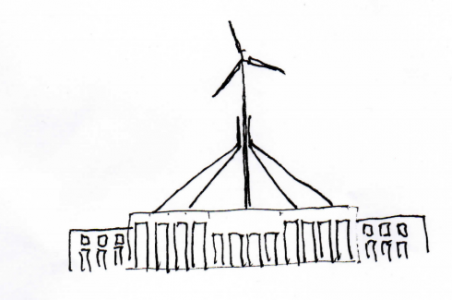‘I can’t sleep’: Household debt escalates as Victorians struggle to pay bills
16th April, 2021
By Henrietta Cook, The Age
Household debt has skyrocketed since the start of the pandemic, with Victorians now owing more than $103 million to gas and electricity retailers for unpaid bills.
Debt has risen by 35 per cent since April 2020, according to new data from the Essential Services Commission that highlights the perilous financial state many Victorians find themselves in.

It comes as energy companies ramp up disconnections, with 2273 electricity and 141 gas disconnections recorded in March, despite the economic watchdog recently extending protections for consumers impacted by the pandemic.
More than 288,000 Victorians have fallen behind on their electricity bills and are not receiving any help, while around 55,000 struggling households are receiving payment assistance from electricity retailers.
The commission’s chair, Kate Symons, said while broader economic conditions had improved and the number of Victorians in arrears had remained relatively stable during the pandemic, those struggling to pay their bills had fallen further into the red.
Victorians unable to pay for their ongoing electricity usage owe an average of $1924, the highest amount on record. This is $500 more than they owed last April.
“This shows the pain is intensifying for those who are in financial difficulty and I’m concerned some sections of the community are getting left behind,” Ms Symons said.
There are concerns the pandemic has widened inequality and while many Australians saved an additional $120 billion in the nation’s banks during the pandemic, others like South Morang resident Jen fell into debt for the first time.
Jen, who does not want to use her surname, owes $400 to utilities companies and has started retreating to bed early to avoid using her gas heater.
“I jump into bed at 7.30pm because it’s warmer there and cheaper than turning on the gas,” she explained.
The 52-year-old single mother said she had always kept up with her bills, but fell behind in December after exhausting her savings.
She also owes $1000 in rent to her landlord and is worried she will soon be evicted. “I cry every day,” she said. “I can’t sleep.”
She has applied to the state government for a utility relief grant and is receiving rental assistance from homelessness service Launch Housing.
Jen, who has been a stay-at-home mum for the most part of 18 years, is desperately hunting for work so that she can pay her mounting bills and keep up with the costs of raising a teenage boy.
“I want to keep a roof over his head,” she said.
Consumer Action Law Centre chief executive Gerard Brody is concerned the situation will worsen and points out that the commission’s statistics cover the period just before the federal government’s JobSeeker coronavirus supplement and JobKeeper wage subsidy came to an end.
He said calls to the organisation’s financial counsellors about energy-related issues had steadily increased since July.
“Many people calling us are still grappling with ongoing fallout of COVID-19 and associated financial stresses that impacted many in our community,” he said.
“Many people are in a tough situation and energy retailers need to do their part to help manage bills by complying with regulatory obligations and making it easy for people to seek assistance.”
Bevan Warner, the chief executive of Launch Housing, said the figures were “shocking but not surprising”.
“The people who were doing it the toughest before COVID-19 are also doing it the toughest coming out of COVID-19,” he said.
He said Victorians were having to choose between paying their bills and rent and spending money on food and healthcare.
“It’s a perilous existence,” he said.
“The daily anxiety compromises people’s resilience and their ability to participate effectively at work, or to parent in the way they want to. It’s a clear source of mental anguish.”
Sarah McNamara, the chief executive of the Australian Energy Council, which represents 12 major electricity and gas retailers, said higher debt levels were bad news for customers and retailers.
“Our members continue to work with customers to find the best way to manage debt levels, such as seeking to move them to sustainable payment plans or hardship arrangements based on individual circumstances,” she said.
“There is a broad range of support available for customers having difficulties, including payment plans.”
She said that to date, retailers had been able to shoulder the financial burden of debt deferrals.
She said disconnections were a last resort but it was important that struggling households contacted their retailer as soon as possible to notify them of financial difficulties.
“You will not be disconnected in these circumstances,” she said.
The Essential Services Commission brought in new rules for energy retailers during the pandemic, which created a moratorium on disconnections during lockdowns and required companies to offer more support to those in the red, including payment plans, and halting referrals to debt collectors.
Last month, it extended these rules until the end of the financial year.

If you look at the data onanero.id/energy under “wind”, you will see that it has huge troughsof production, spanning days. This has to have standby power, and the usual kind is rael turbines burning methane, flatteringly known as “natural” gas. It is exactly as natural as the other hydrocarbon alkanes, including the heptane and octane in what Britain calls ‘petrol’, and the USA ‘gasoline’.
LikeLike